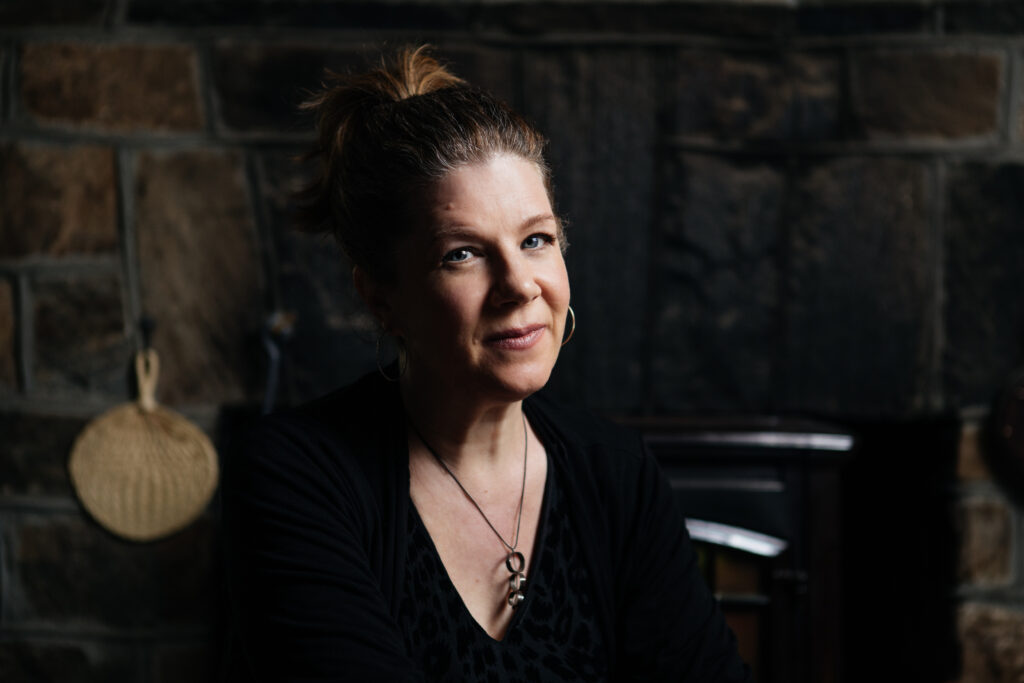Every part of the rainforest: The songwriting ecology of Dar Williams
Indie singer-songwriter Dar Williams has a solid following among people who love music—including other musicians. Now, in a new book, she shares her inspiration.
If you don’t already have Dar Williams on your playlist you’re missing out on one of the best and most prolific female singer-songwriters over 40. Williams is an LGBTQIA+ ally with such a poetic and humanist insight as to have earned that label. Her songs “The Christians and the Pagans” and “When I Was a Boy” deal both directly and obliquely with queer themes. Williams is a sophisticated super empath, and to this extent it totally makes sense that as well as teaching songwriting masterclasses and building a devoted folk-pop following who knows every lyric to every song, she should have the authority to write a book titled How To Write a Song That Matters.
Yes, you read that correctly. It’s not called How To Write A Hit Song—for very good reason. Hit songs also come and go, but the ones that stay on our playlists over time were always songs that mattered.
Take a look at some of Williams’ lyrics to “When I Was a Boy”:
I was a kid that you would like, just a small boy on her bike
Riding topless, yeah, I never cared who saw
My neighbor came outside to say, “get your shirt”
I said “no way, it’s the last time I’m not breaking any law”
The last time I saw Williams play was in Tarrytown, New York, and I observed her not so much sing, as tell stories to music—and her audience listen, enthralled.
Williams, who has toured all across America and who is a uniquely skilled observer of the life inside us and without, has written three other books, but this one is most directly about her craft as a singer-songwriter.
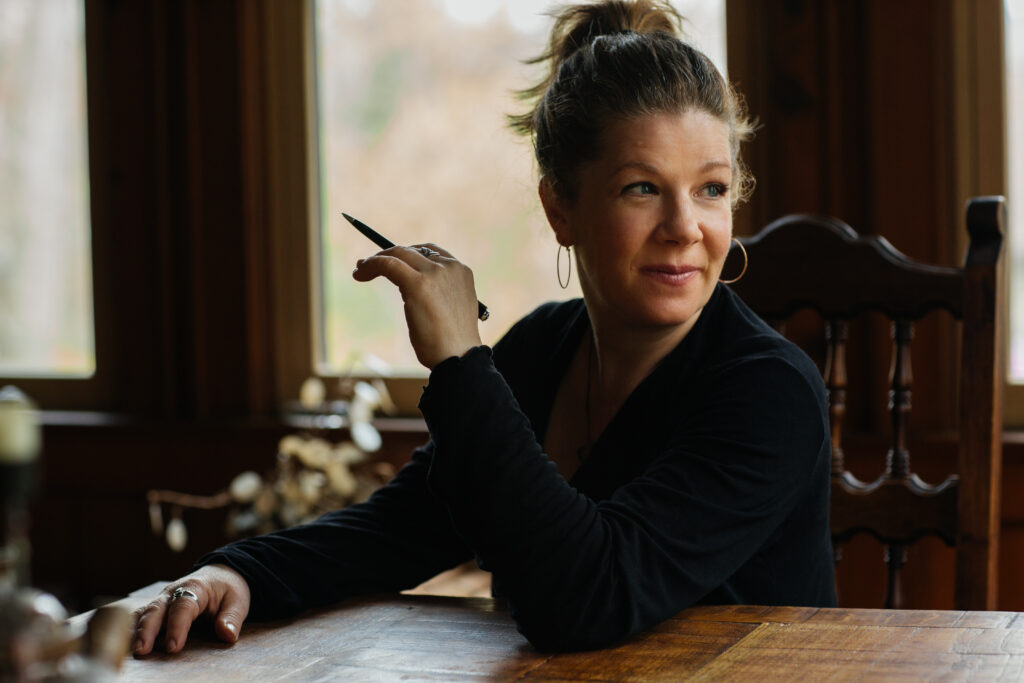
Williams taps into a long folk music tradition where women have flourished as wordsmith musicians (Joan Baez was a mentor); in folk music, words matter, and “yeah’ and “baby” rarely get a look-in unless ironically. Williams has a broader and more complex canvas and paintbox than your average pop artist. In her compositions you are more likely to hear about a herbalist midwife in 19th Century Massachusetts (“Holly Tree”); or how the mighty Hudson River acts as an objective correlative for the artist’s soul (“Hudson”); and of course how a girl pretends to be a boy so she can run away with Peter Pan and have adventures, not as Wendy, but as the true tomboy she is (“When I Was a Boy”).
A longtime admirer of Williams songwriting skill, I was delighted to dip into her book, which is a must-read for aspiring songwriters or for anyone who has ever listened to a song that matters to us, and wondered how such melodies are born (Williams explains it and more in her book). Here is an edited version of a fabulous conversation we had.
Q40: I have asked many musicians over the years where songs come from. Where do they come from for you? In your book you mention the concept of poetic thinking. Can you explain that a little more?
Dar Williams: You know, I think I think we all have it. A friend of mine said, “It’s all about poetic thinking. And when we lose it, we’ve lost everything.” She said that to me in my twenties, so that’s when I discovered there was a distinction between what we call objective thinking—where things are just the objects of our lives—and subjective, where every table and chair has a resonance of metaphor and memory and anchors us in time and space. Then I realized at my retreats that I would say something—we give prompts at the beginning of the day, which is just a little phrase that might excite some song ideas or melodies—and I realized that they could be very ordinary, and that people would turn those into songs. And I realized that really the important thing was that we were giving them a prompt, which was an invitation to see poetically. That can be a portal for us. It’s our decision to think poetically at any given moment. Regardless of money or opportunity, we can all access that way of thinking.

So, why How to Write a Song That Matters rather than “how to write a hit song”? Are they the same thing or are they different things?
Williams: That was what was wired into the retreat that I led, from the start, because a friend of mine said, “You should lead a songwriting retreat.” And I said, “I can’t because everybody wants to know how to write a hit song and I don’t do that. It would have to be called Writing a Song That Matters. He said, “Well, call it that.” And lo and behold, it became a calling card, the perfect invitation to people to come with a desire to write a song that matters, as opposed to trying to game the system to create something that the marketplace wanted.
And the truth is that if you start there, even people who do this for a living and show up literally in buildings and are assigned co-writers and told, you know, Write a song about New York—even those people have to access or choose to access some part of themselves for whom that topic is relevant. When I did some co-writing down in Nashville, the first thing we would say to each other is, you know, What’s up with you, what’s important to you, what’s interesting to you, what’s personal? So I would argue that trying to write things solely from what you think the world wants to hear is really tough and definitely not sustainable because after a while, you just disassociate from it. And it’s going to become so cynical that you can’t get a single note out.
I feel that women independent singer-songwriters often get the a rough deal in terms of the marketplace, but how do you see yourself as an artist in terms of commercialism? How do you put out “Holly Tree,” which reaches back into history to cast a feminist perspective over it? That is a lot to pack into one song. Is that something you hope to teach?
Williams: Oh, well, thank you. … There’s this thing that I call the voice of the song—every song will kind of have its own voice of what it wants to be. And so if you say, Damn, I wish I could write a political song, but I’m writing, you know, a song about the family piano, and it’s and it’s funny, well, that’s the voice of the song, that’s where that song is going. What happens is that all those little parts of yourself that show up at different times, will poke their little heads out in the form of the voice of the song. … So when we let songs come to us and we just follow the voice of the song, then we’re accessing all the diverse parts of ourselves without any concern for how we’re coming across. Sometimes I think the thing that unites all of the themes of my life is me and I have no better way to describe it.
I was surrounded, in the nineties, by people like Janis Ian, and Judy Collins, who had a really incredible range of stuff that she sang and wrote about, so I was surrounded by people who followed the song instead of following what they thought women were supposed to do.
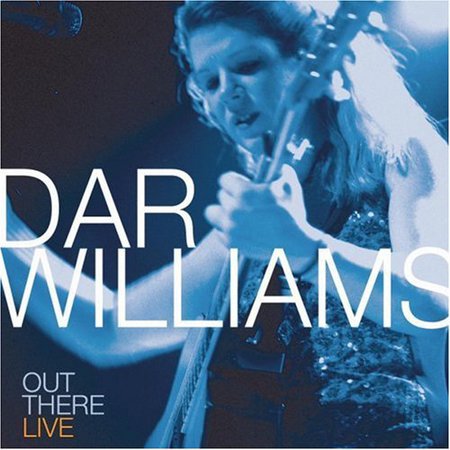
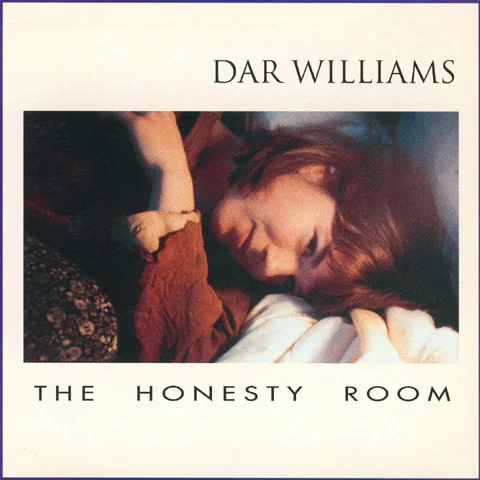
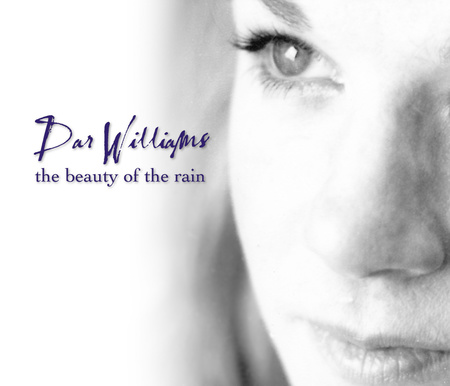
Can we talk a little bit about the female mentorship? Because that was a it’s a magical time, definitely, for for female singer-songwriters. I heard you had a mentor Joan Baez. And you really look out for your female contemporaries and colleagues. It is not often like that in the broader music business.
Williams: It was in my business. You really were frowned upon if you had no instinct, if you just pulled up the rope ladder as soon as you got to the top. Being supportive of other songwriters is a way to keep you from being lonely. And it helps to continually sew new seeds into the whole scene of this off this subculture. And we need the subculture itself to be thriving in order to keep working in it. So it’s an instinct as much as altruism. It is the nature of what we do to be interested in every part of the rainforest.
If I may dwell on the theme of women a little bit more. In “As Cool as I Am,” there’s a line that I’ve always been intrigued by: “I will not be afraid of women.” Can you tell me what it means and where it came from?
Williams: I lived in Northampton, Massachusetts, which was, you know, a lesbian Mecca. And one of the couples that inspired the song was a female couple. So it’s not just [about] the ways that men put women on guard about their appearance and who they’re serving in their service. It was actually a lesbian couple where I could see this woman pressing on all of the bruises in her partner as insecurity by talking about other women in a very sort of fantastical, unattainable way and as a way to control her girlfriend. I could have said, “I will not be threatened by other women. I will not compare myself…” But really, at the end of the day, it’s it’s actually a wholesale measure to make you afraid of other women instead of seeing women as a resource and as a source of strength, to literally just create a sense that we need to be too afraid of other women to encounter them for what they offer, which is is everything: Friendship, identity, familiarity, community. And so that’s kind of an extreme way to say it, “I will not be afraid of women,” but that’s really the goal, I believe, when people otherwise women in a good way, you know, sort of say she’s a goddess, she’s an angel, she’s amazing. It’s not of this earth. Oh that shit just kills me.
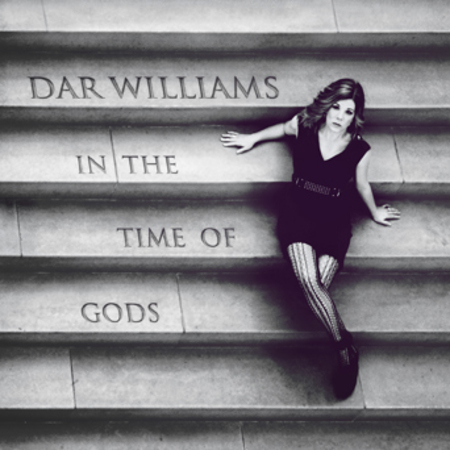
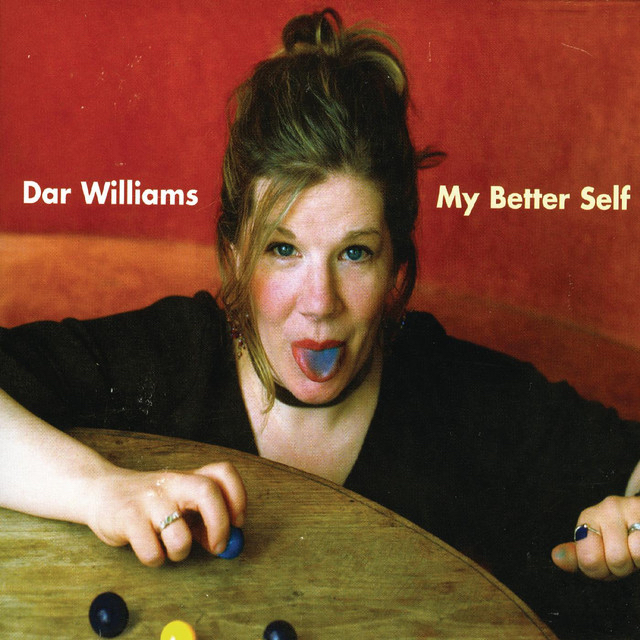
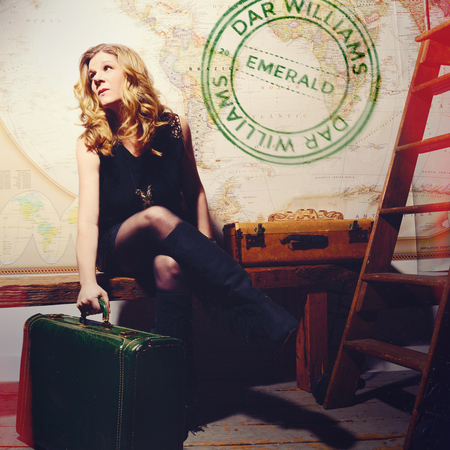
It’s not helpful, is it?
Williams: And it’s not meant to just make you feel competitive with one woman. It’s meant to cut you off from all women.
Do you remember what year it was when you wrote “When I Was a Boy”?
Williams: Yes, it was the spring of 1993.
And look what’s happening 30 years later, we are questioning these binaries, who makes them, what they do to us… and how to subvert the gender we are assigned if we so choose.
Williams: This was a great lucky thing for me. A few things: One is that I am able to use that song as a prototype for why it’s great to write songs that matter to us because we never know what nerve we might be hitting, you know? And sometimes it’s nothing, and nobody relates and you just quietly put it on the shelf and you don’t take it down. But I have this incredible precedent to point to when people say, Why should I write a song that matters as opposed to trying to write a hit? Because what matters could be the hit if you really listen to your gut. So I listened to my gut when said I was a boy instead of when I was like a boy, because the feminists would probably prefer [me] to say when I was like a boy, when I was a tomboy, but it was that feeling of boy-ness that I couldn’t get away from as I wrote the song. That was honest to me. And then that ending with the man who turns around and says, When I was a girl. That was also honest to me. … I recognized when I was writing the song that it wasn’t fitting in directly with feminism or sexual orientation; it was different for the narrator than what I knew from the the LGBT movement and the feminist movement, both of which I was steeped in because of Northampton and Wesleyan and my upbringing, and all that. What’s funny now is that I call it a quaint period piece because we’ve come so far from that moment of going, When I was a boy. The gender conversation is like a rainbow, you know? And mine was just a little glimpse of a little color here and a little color there of what it was going to become.
I was thinking also about “The Christians and the Pagans,” the way that you use the song structure for this dialectical look at two counter-opposite positions, the pagans being a lesbian couple, and then braiding the verses to find the common ground. You’re really trying to arrive at a better place through the songwriting.
Williams: I’m an audience-based artist, so I’ve always learned about myself from my audiences at open mic gigs and tip jar gigs and as an opening act and also, singer-songwriter venues being pretty much downtown and in schools and churches and community art centers. But I was always able, even early on as a traveling musician, to see the frontiers of American culture. And that was interesting to me. So I won’t write something that I’m supposed to write for political reasons. But I but I like seeing a man coming up to me, with white hair and suspenders and, you know, hearing him say, My daughter lives with her girlfriend on an organic farm. I was seeing a lot of the old guard finding ways to accommodate new thinking and new people, because they had discovered, thanks to a lot of the strength of the LGBT movement and and feminism, that if they couldn’t swing with the new stuff, they were going to lose family members, because people just won’t show up at your holiday table if you’re rigid and homophobic. They just will find chosen families and live happily ever after. So I think if there’s healing, it’s because I was saying, this country is a lot cooler than you know. And so, of course, I wanted to write stories that had to do with the new ways that we were dealing with aging and sex and sexuality and gender.
You’re pushing 20 albums, over about 30 years. Does getting older enrich your your work?
Williams: I’m pretty sure it was Toni Morrison, but I can’t track down the quote, but they basically said does writing get easier as you get older because arguably, you’re more fluid with with the process of creating, but she said no because when you get older, you become more complicated. So telling stories that keep pace with your complicated brain is harder. My brain is more complicated. If a song is a tree, there’s just more branches, more twigs and more apples to deal with. You still want that tree to have its own life. There’s a song I have called “Time Be My Friend,” and time brings us things that surprise us, that are better than we expected. Time unfolds and the way that time unfolds is a thing to appreciate in and of itself. Accepting the present moment is a real gift. I’m seeing in my fifties there’s a way I can control my schedule and my life better than when I was scrambling and saying yes to everything. It’s also a time of a lot more freedom, and the wisdom that we get from long friendships, that’s a big one. I feel like we’re in a place now where we’re finally breaking through some of that ageism. And it’s just in time for me to say, Yeah, I have the evidence that aging is like a total psychedelic trip. I learn something really amazing every day, and I’m like, this is my new wisdom.
Dar Williams has songwriting workshops and concert dates all through winter. Visit Dar Williams’ website for information about her gigs and retreats. Find out more about How To Write a Song That Matters here.

